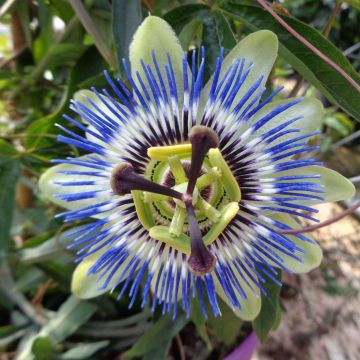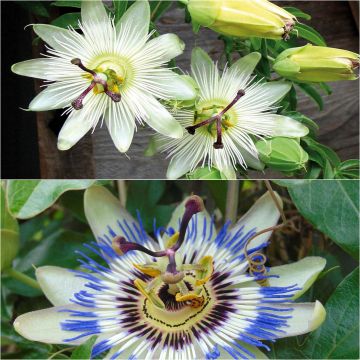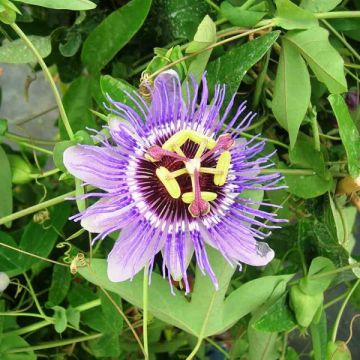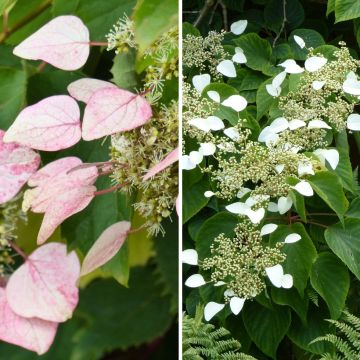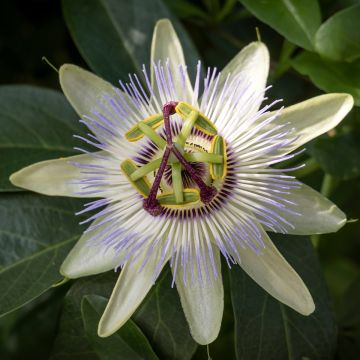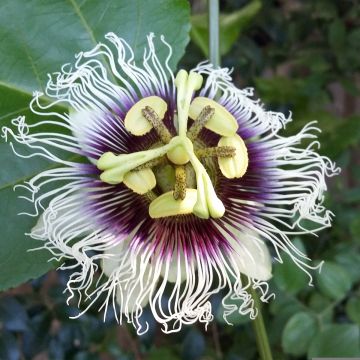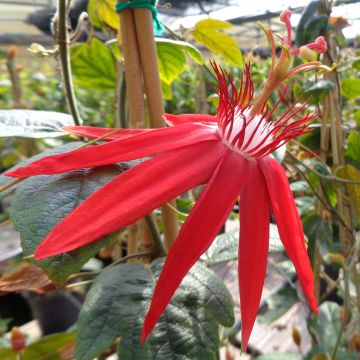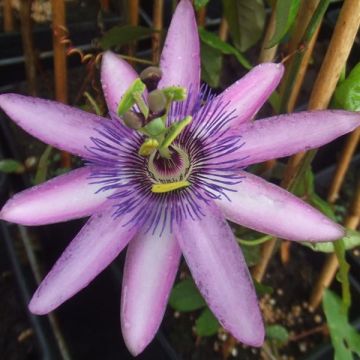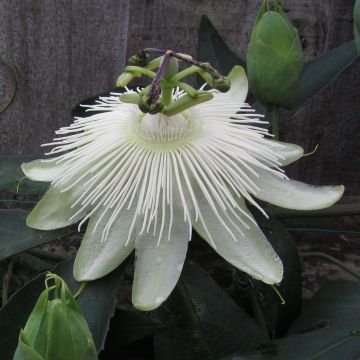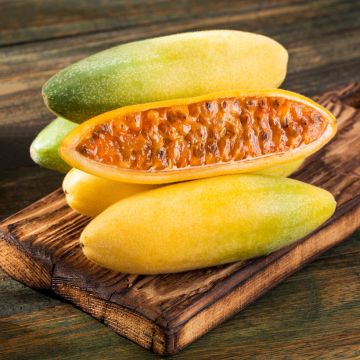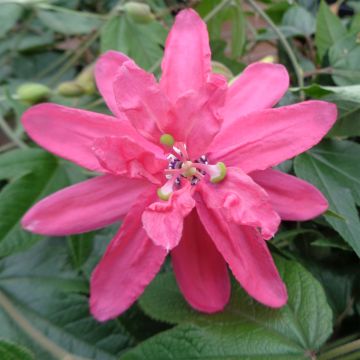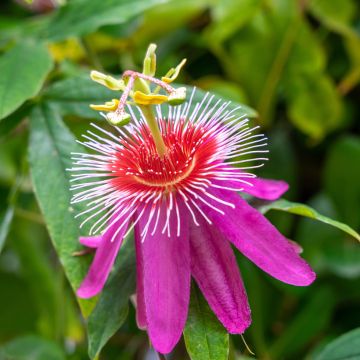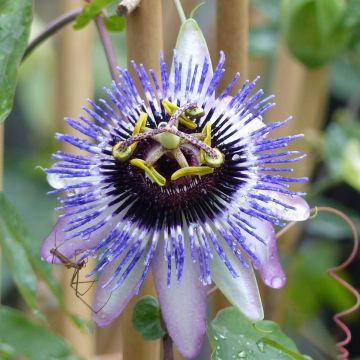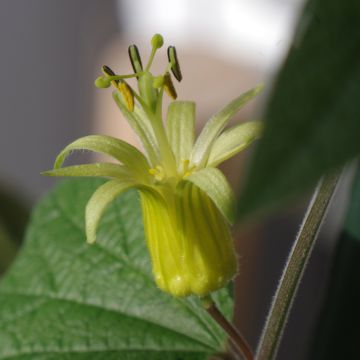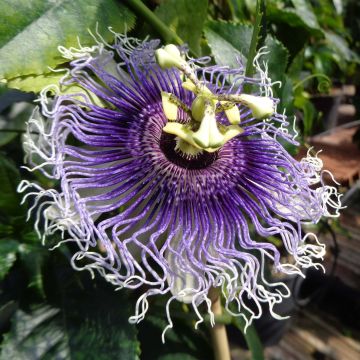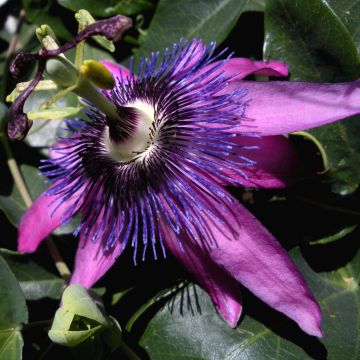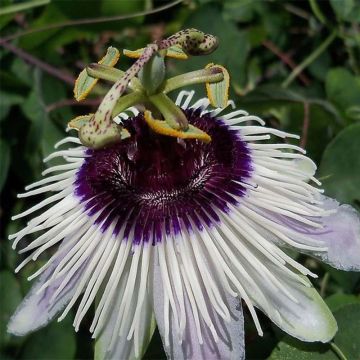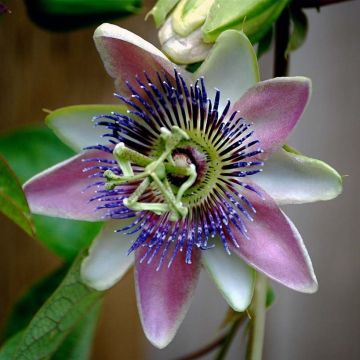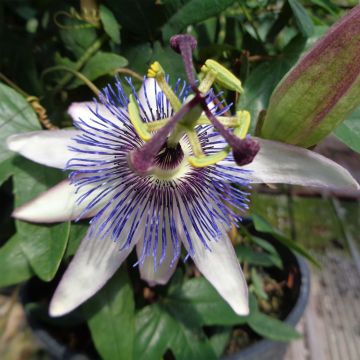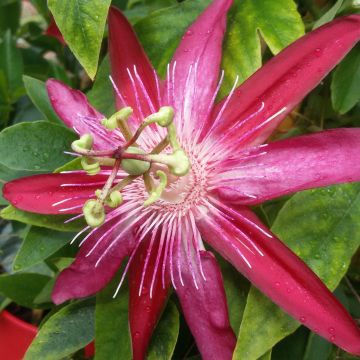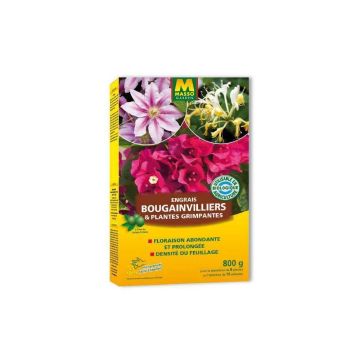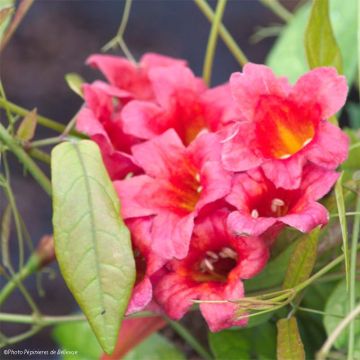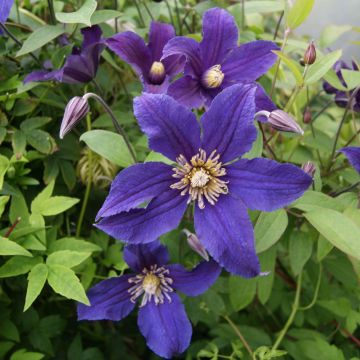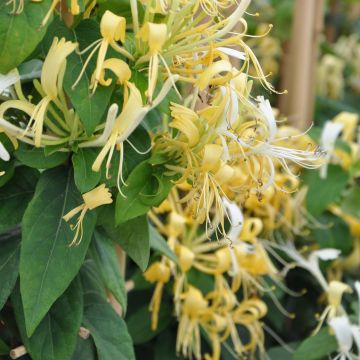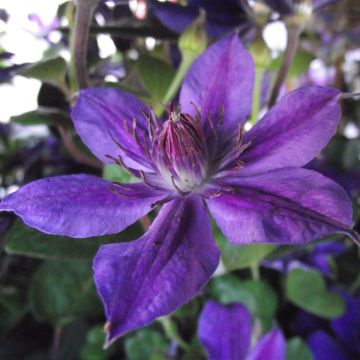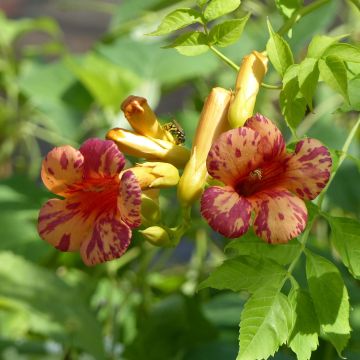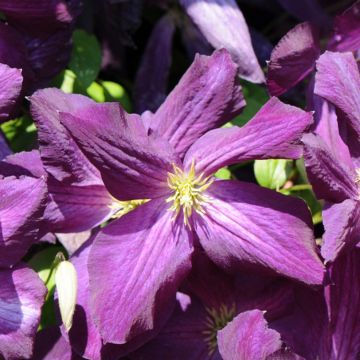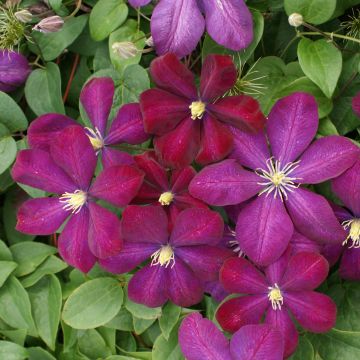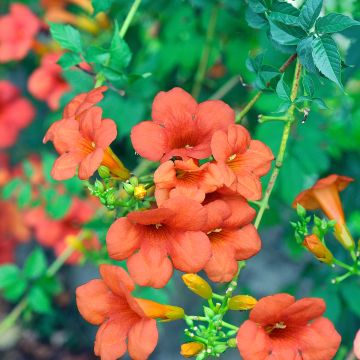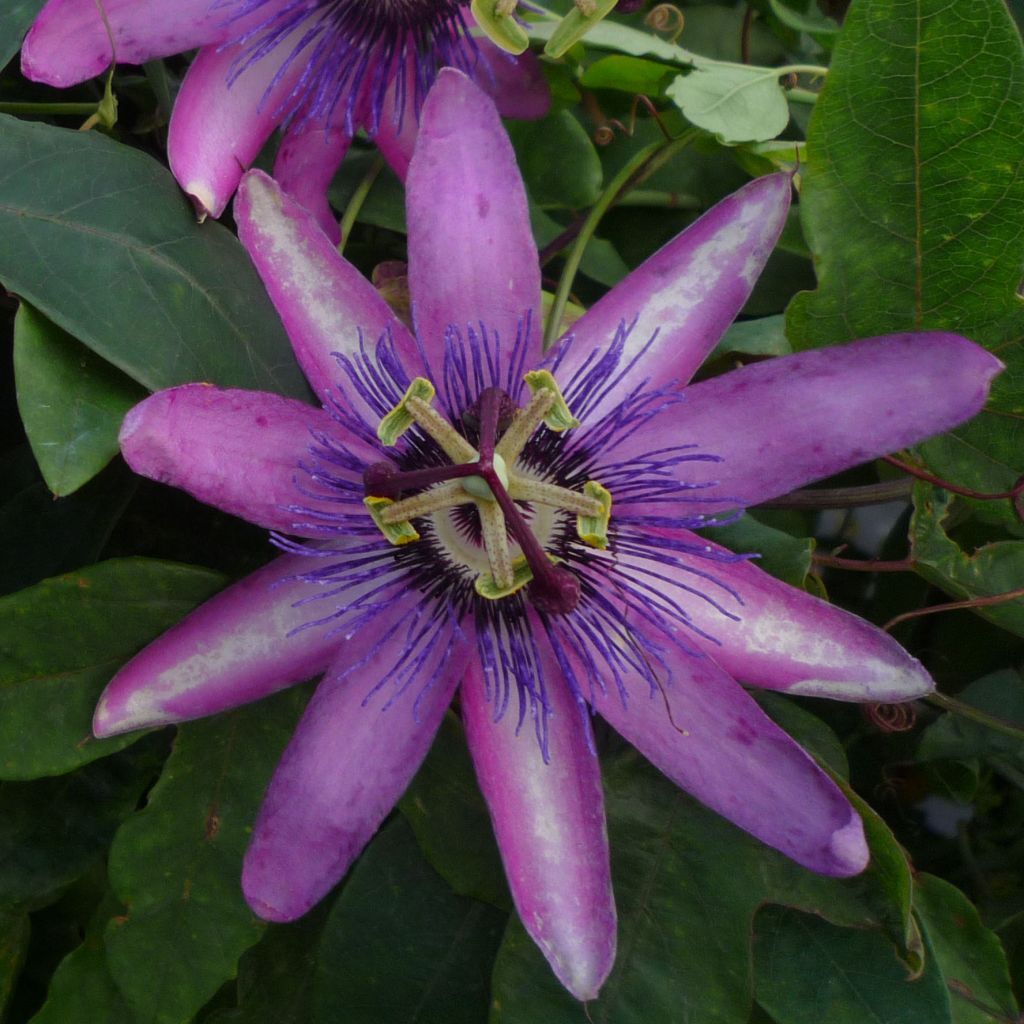

Passiflora Violacea- Passion Flower
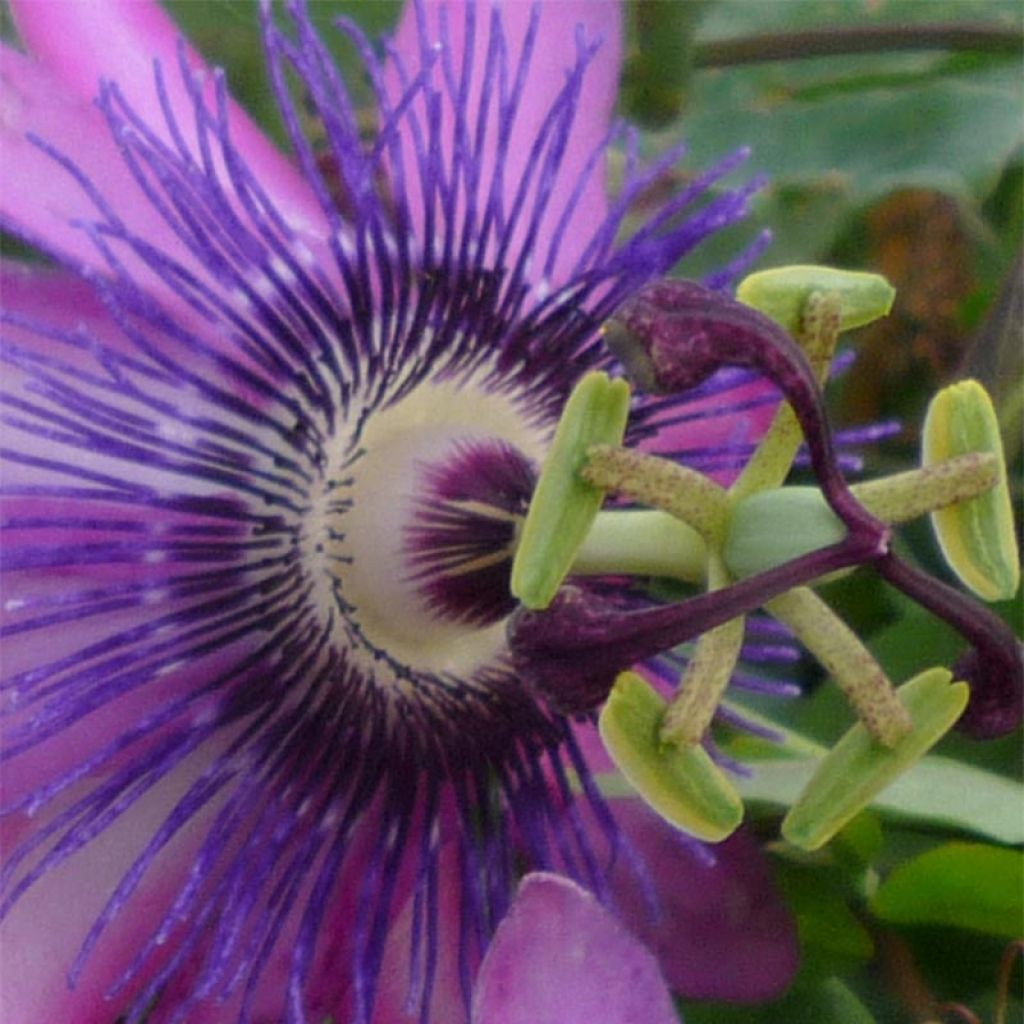

Passiflora Violacea- Passion Flower
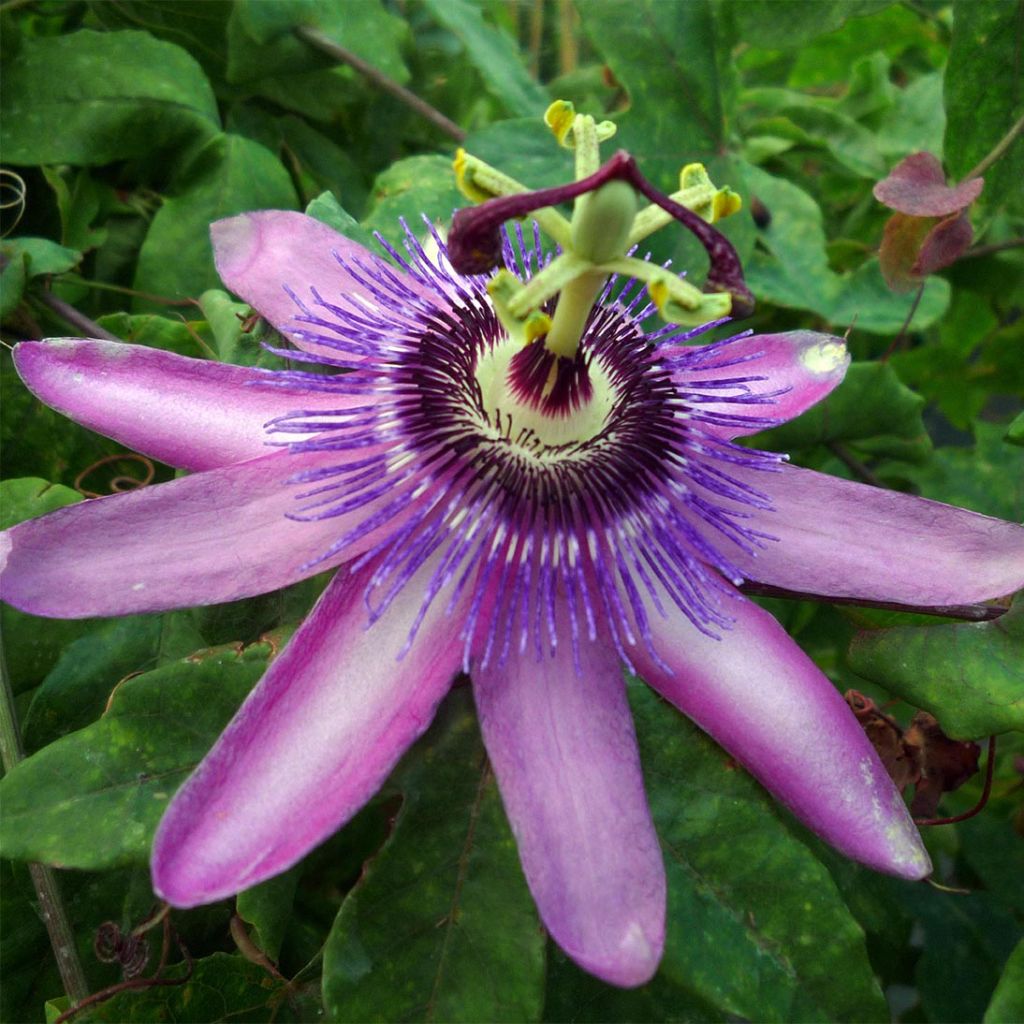

Passiflora Violacea- Passion Flower
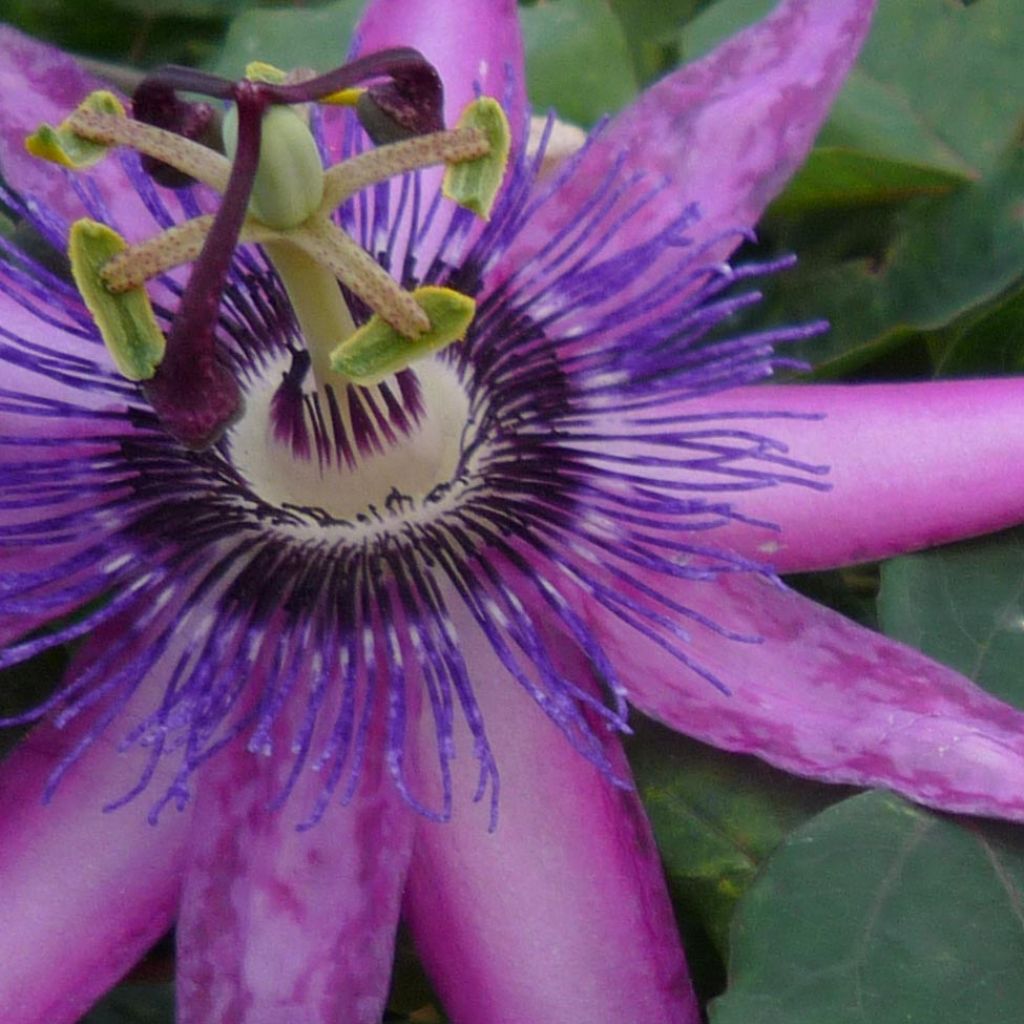

Passiflora Violacea- Passion Flower
Passiflora Violacea- Passion Flower
Passiflora Violacea
Passion Flower, Passion Vines
Why not try an alternative variety in stock?
View all →This plant carries a 6 months recovery warranty
More information
We guarantee the quality of our plants for a full growing cycle, and will replace at our expense any plant that fails to recover under normal climatic and planting conditions.
From €5.90 for pickup delivery and €6.90 for home delivery
Express home delivery from €8.90.

Does this plant fit my garden?
Set up your Plantfit profile →
Description
The Passiflora Violacea, also known as P.amethystina or P. 'Amethyst' is perhaps the oldest known horticultural hybrid among passionflowers. Still widely planted in mild climate gardens, it is universally appreciated for its robustness and good cold resistance. This beautiful liana is vigorous and vibrant when its medium-sized flowers appear, resembling its parent, the blue passionflower, but more colourful in a deep blue-violet tone, sometimes marked with white or black. They are lightly scented, occasionally producing hollow fruits, and bloom from June to October on dark green lobed foliage, which may or may not be evergreen. Plant it in a sunny, sheltered location with loose and deep soil. Success is guaranteed, whether in the garden or on the terrace!
Mostly native to tropical areas of South America, passionflowers belong to the large family of Passifloraceae, which includes 400 species and numerous spontaneous or horticultural hybrids.
The Passiflora (x) Violacea is an ancient horticultural hybrid obtained in 1824 by Loiseleur-Deslongchamps, a French botanist and nurseryman. This variety results from cross-breeding between the P. caerulea, native to South America and naturalised in the south of France, and the P. racemosa, from Brazil, with purple flowers in racemes. This excellent variety has received an Award of Garden Merit, a distinction awarded in England by the RHS for its ornamental qualities and ease of cultivation.
'Violacea' is a voluble plant with persistent stems that cling to its support using tendrils, reaching a height of 4m (13ft) and spreading over 3m (10ft). It is characterized by its quadrangular stems adorned with thick, oval-shaped, dark green lobed leaves, sometimes washed with coppery reflections, which may or may not be evergreen. Its flowering extends from summer to early autumn, with flowers measuring 5-6cm (2in) in diameter that constantly bloom on the plant, more abundantly in full sun. The flowers, lightly scented, have mauve-violet petals, with the central crown more or less streaked with white or black. The stamen cluster is cream-green. The unusual shape of the ephemeral flower evolves petals and sepals curl, while the filament crown folds and straightens to avoid self-pollination. Once pollinated, the flowers give way to rare oval and orange fruits measuring 5 to 6 cm (2in) long. These fruits are mostly hollow.
This Passionflower is not a fussy and difficult plant to grow like some orchids. It grows easily in well-drained, light, fairly deep soil that is not too dry in summer, and blooms generously in sunny and sheltered locations. At the end of flowering, pruning involves reducing the branches to maintain a beautiful shape. With its height of 4 to 5m (13 to 16ft) and exotic and generous flowering, the Passiflora Violacea is a wonderful plant for covering walls, fences, trellises, and porches or weaving through hedges. It is also highly appreciated in verandas, where it will withstand cold winters without damage. Enthusiasts of exotic vines will also cultivate the Podranea ricasoliana (pink trumpet vine) and Mandevilla laxa, with large white and fragrant flowers. All three can endure short freezes of around -8°C (17.6°F) without weakening.
Report an error about the product description
Passiflora Violacea- Passion Flower in pictures
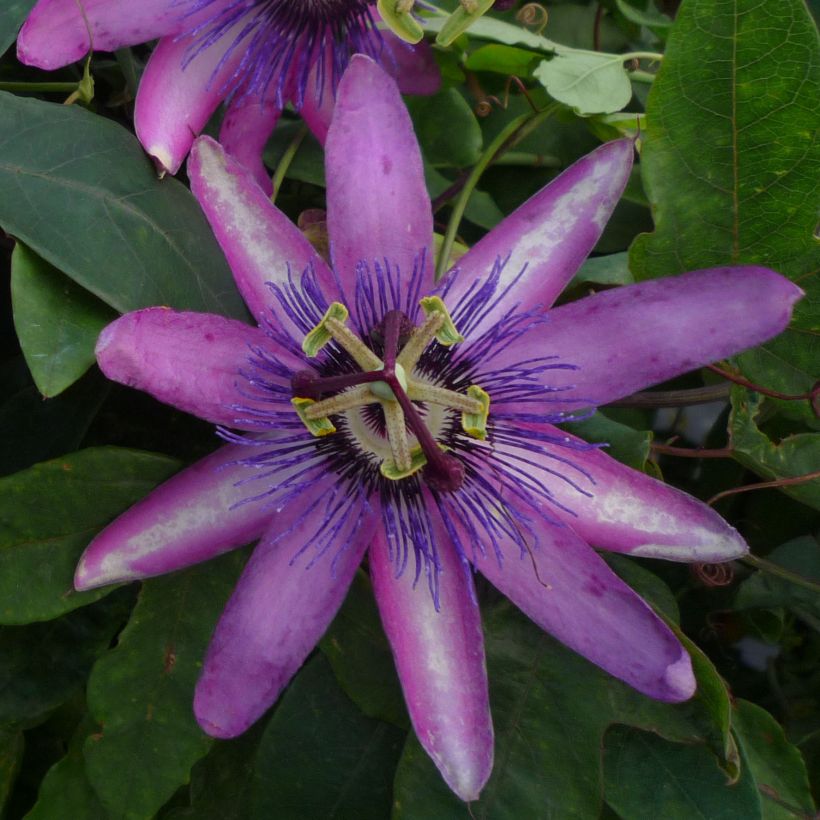

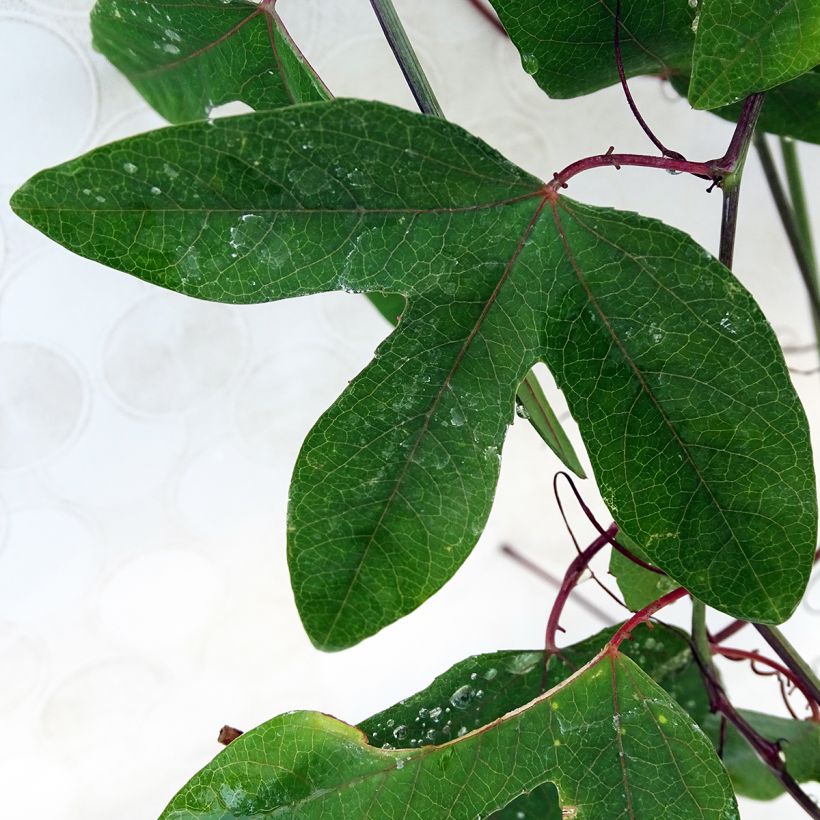

Plant habit
Flowering
Foliage
Botanical data
Passiflora
Violacea
Passifloraceae
Passion Flower, Passion Vines
Cultivar or hybrid
Other Passionflowers
Planting and care
The Violacea passionflower is a sun-loving and heat-loving plant which should be sheltered from cold and drying winds. Plant it in regular but deep, well-worked, well-amended, and well-drained soil. Under these conditions, it grows easily and without any specific requirements for the soil as long as it is balanced and healthy. Hardy down to -8°C (17.6°F), it should only be planted in the ground in a protected location, with good winter mulching. Place it on a support to support the weight of the vegetation. Direct its branches well on the support as the growth is exuberant. Pruning before winter is recommended to maintain a reasonable size. Do not hesitate to cut back the main branches to facilitate growth. Remove dead or poorly placed branches and prune the plant to provide air circulation by cutting back excess branches. Be careful of scale insects, whiteflies, and the cucumber mosaic virus. Treat preventively.
Planting period
Intended location
Care
-
, onOrder confirmed
Reply from on Promesse de fleurs
Summer flowering climbers
Haven't found what you were looking for?
Hardiness is the lowest winter temperature a plant can endure without suffering serious damage or even dying. However, hardiness is affected by location (a sheltered area, such as a patio), protection (winter cover) and soil type (hardiness is improved by well-drained soil).

Photo Sharing Terms & Conditions
In order to encourage gardeners to interact and share their experiences, Promesse de fleurs offers various media enabling content to be uploaded onto its Site - in particular via the ‘Photo sharing’ module.
The User agrees to refrain from:
- Posting any content that is illegal, prejudicial, insulting, racist, inciteful to hatred, revisionist, contrary to public decency, that infringes on privacy or on the privacy rights of third parties, in particular the publicity rights of persons and goods, intellectual property rights, or the right to privacy.
- Submitting content on behalf of a third party;
- Impersonate the identity of a third party and/or publish any personal information about a third party;
In general, the User undertakes to refrain from any unethical behaviour.
All Content (in particular text, comments, files, images, photos, videos, creative works, etc.), which may be subject to property or intellectual property rights, image or other private rights, shall remain the property of the User, subject to the limited rights granted by the terms of the licence granted by Promesse de fleurs as stated below. Users are at liberty to publish or not to publish such Content on the Site, notably via the ‘Photo Sharing’ facility, and accept that this Content shall be made public and freely accessible, notably on the Internet.
Users further acknowledge, undertake to have ,and guarantee that they hold all necessary rights and permissions to publish such material on the Site, in particular with regard to the legislation in force pertaining to any privacy, property, intellectual property, image, or contractual rights, or rights of any other nature. By publishing such Content on the Site, Users acknowledge accepting full liability as publishers of the Content within the meaning of the law, and grant Promesse de fleurs, free of charge, an inclusive, worldwide licence for the said Content for the entire duration of its publication, including all reproduction, representation, up/downloading, displaying, performing, transmission, and storage rights.
Users also grant permission for their name to be linked to the Content and accept that this link may not always be made available.
By engaging in posting material, Users consent to their Content becoming automatically accessible on the Internet, in particular on other sites and/or blogs and/or web pages of the Promesse de fleurs site, including in particular social pages and the Promesse de fleurs catalogue.
Users may secure the removal of entrusted content free of charge by issuing a simple request via our contact form.
The flowering period indicated on our website applies to countries and regions located in USDA zone 8 (France, the United Kingdom, Ireland, the Netherlands, etc.)
It will vary according to where you live:
- In zones 9 to 10 (Italy, Spain, Greece, etc.), flowering will occur about 2 to 4 weeks earlier.
- In zones 6 to 7 (Germany, Poland, Slovenia, and lower mountainous regions), flowering will be delayed by 2 to 3 weeks.
- In zone 5 (Central Europe, Scandinavia), blooming will be delayed by 3 to 5 weeks.
In temperate climates, pruning of spring-flowering shrubs (forsythia, spireas, etc.) should be done just after flowering.
Pruning of summer-flowering shrubs (Indian Lilac, Perovskia, etc.) can be done in winter or spring.
In cold regions as well as with frost-sensitive plants, avoid pruning too early when severe frosts may still occur.
The planting period indicated on our website applies to countries and regions located in USDA zone 8 (France, United Kingdom, Ireland, Netherlands).
It will vary according to where you live:
- In Mediterranean zones (Marseille, Madrid, Milan, etc.), autumn and winter are the best planting periods.
- In continental zones (Strasbourg, Munich, Vienna, etc.), delay planting by 2 to 3 weeks in spring and bring it forward by 2 to 4 weeks in autumn.
- In mountainous regions (the Alps, Pyrenees, Carpathians, etc.), it is best to plant in late spring (May-June) or late summer (August-September).
The harvesting period indicated on our website applies to countries and regions in USDA zone 8 (France, England, Ireland, the Netherlands).
In colder areas (Scandinavia, Poland, Austria...) fruit and vegetable harvests are likely to be delayed by 3-4 weeks.
In warmer areas (Italy, Spain, Greece, etc.), harvesting will probably take place earlier, depending on weather conditions.
The sowing periods indicated on our website apply to countries and regions within USDA Zone 8 (France, UK, Ireland, Netherlands).
In colder areas (Scandinavia, Poland, Austria...), delay any outdoor sowing by 3-4 weeks, or sow under glass.
In warmer climes (Italy, Spain, Greece, etc.), bring outdoor sowing forward by a few weeks.

































